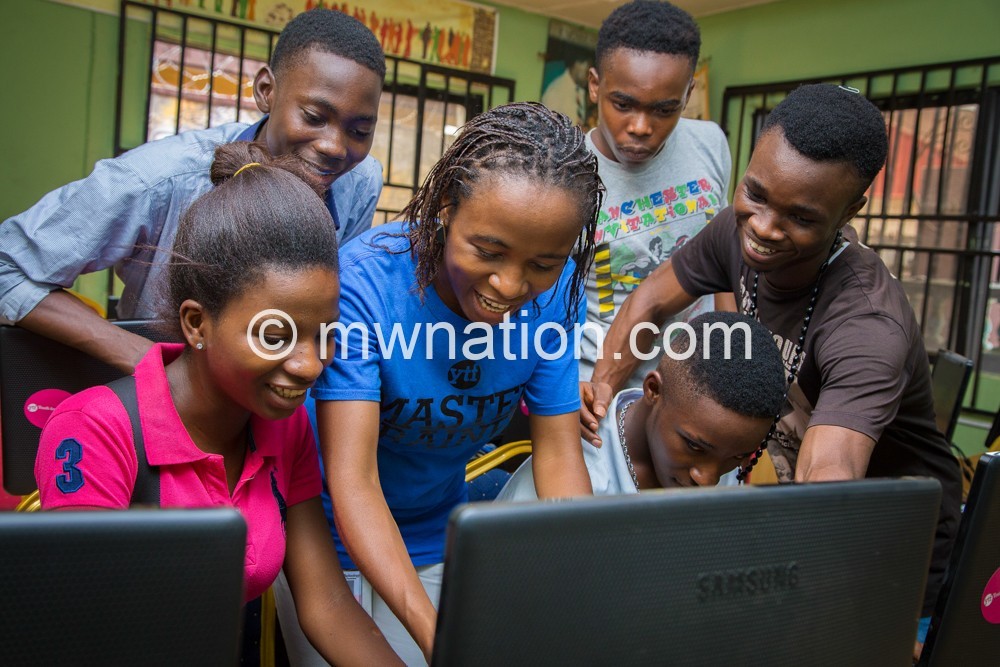Passion, statistics vital in lockdown talks
25 When he went in and stood before his master, Elisha asked him, “Where have you been, Gehazi?” “Your servant didn’t go anywhere,” Gehazi answered. 26 But Elisha said to him, “Was not my spirit with you when the man got down from his chariot to meet you? Is this the time to take money or to accept clothes—or olive groves and vineyards, or flocks and herds, or male and female slaves? 27 Naaman’s leprosy will cling to you and to your descendants forever.” Then Gehazi went from Elisha’s presence and his skin was leprous—it had become as white as snow.—2 Kings 5:25-27
When then president Bakili Muluzi appointed two women as ministers and another two as deputy ministers, a group of women from the Women’s Voice invaded Sanjika Palace to demand more appointments of women in decision-making positions. This was 1994, a year before Beijing. We wanted Malawi to be on track and 12 of us marched into the meeting, fully loaded with a deep passion to stoke the fires in the name of gender equality.
But Joyce Banda, who later became Malawi’s first female president, brought in her manila folder, a bevy of statistics on society and women that had the president’s men and women fervently taking down notes as she spoke.
This little epitaph is retold to celebrate the court-ordered meeting on April 24 2020 on the national lockdown that was ordered by President Mutharika and subsequently challenged by Human Rights Defenders Coalition (HRDC). However, the fanfare must be cut short to enable us to advance some of the pertinent issues that should unfold, after peeling away the passion onion. Here is a small list of things the delegates may take to the table for consideration.
Delegates to the all-party conference must take true and verifiable vital statistics of their constituents. These will determine the extent of assistance the government should provide. How many Malawian households live below the poverty line? How many Malawians go to bed hungry? How many Malawians have little or no access to water? There are numbers on casual labourers and petty traders? These groups are the most impacted in a lockdown.
The government should budget, allocate and disburse a subsistence allowances to every Malawian. This should be done in the same manner former president Bingu wa Mutharika handled the Farm Input Subsidy Programme coupons—it avoids wasting time on arguing who qualifies or does not.
Tobacco and maize crops are still in the gardens. If all Malawians are commanded to stay at home, the crops will either be wasted or stolen. The government needs to either permit farmers to harvest their crops or pay them the amount each farmer would have made.
The cost of four essential commodities and fees must be reduced. These are electricity and water, Macra fees, commercial costs of MBC, and fuel costs.
On health, government should request manufacturers operating in Malawi to produce personal protective equipment. It is difficult to understand why the country imports theatre gowns made of polyester and cotton and 70 percent alcohol sanitisers which are produced in Malawi.
Government should also dispatch local technology experts to come up with inventions for use in the pandemic. Furthermore, science and medical researchers should be dispatched to conduct homegrown research on Covid-19. Malawi has scientists and medical doctors. Relying on foreign experts in this pandemic is risky.
The salaries of all health workers and other essential workers should be increased by an agreed percentage.
In closing the borders, the military should boost the security of the country. The pandemic is a war; protecting the country’s borders is like protection during wartime.
Another important point to consider is that Malawi must resist foreign medicines, vaccines, or research ideas.
Amid all the conspiracy theories, the time is ripe for Malawi and Africa to invest in home-grown or Africa-grown ideas, data collection and analysis, products, research, and inventions.
Malawi should continue working with the African Union in handling the racialism around the pandemic.
Remember to wash hands with soap frequently; don’t shake hands (just wave); wear a mask when you go out; avoid large crowds (maintain social distances), avoid people that are sick; avoid people if you are sick; cough or sneeze in the crook (elbow) of your hand; eat healthily (fruits and vegetables).
During the lockdown, stay safe, stay well, and stay healthy!


